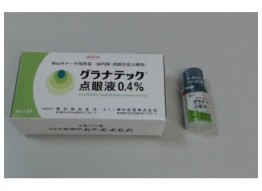Metformin hydrochloride tablets 250 mg for type 2 diabetes (Glucophage)
What are Metformin hydrochloride tablets 250 mg for type 2 diabetes (Glucophage)?
Metformin is a hypoglycemic drug of biguanide class. It is used for the treatment of type 2 diabetes. Metformin provides the following effects:
- promoting sugar utilization in the muscles,
- suppressing sugar production in the liver,
- reducing sugar level in the blood,
- improving gut microbiota,
- providing an anorexiant effect, decreasing intake of calories.
Metformin hydrochloride tablets are well tolerated and don't cause weight gain. This medicine can be used alone as a first-line treatment due to the significantly lower risk of hypoglycemia and congestive heart disease. However, they can also be combined with other medications, including insulin.
Active principles: metformin hydrochloride
Amount: 100 tablets
Maker: Daiichi Sankyo Co., Ltd. / Towa Pharmaceutical Co., Ltd. / Nipro Pharma Corporation, Japan
Indications: type 2 diabetes mellitus
How to take
Adults: start with 2 tablets (500 mg of active principle) a day, dividing this amount into 2 or 3 times, immediately before or after meals. Gradually increase the dosage up to the maintenance dose. Your doctor should prescribe the maintenance dose based on your response, usually 3-6 tablets a day, divided into 2 or 3 times. Your doctor may adjust the dose according to your symptoms. Maximum daily intake of 9 tablets should not be exceeded.
Children 10 years and older: start with 2 tablets a day, dividing into 2 or 3 times, immediately before or after meals. Gradually increase the dose up to the maintenance dose. Your doctor should prescribe the maintenance dose based on your response, usually 2-6 tablets, divided into 2 or 3 times. Your doctor may adjust the dose according to your symptoms. Maximum daily dosage should not exceed 8 tablets.
Please note that this medicine contains 250 mg of active principle in 1 tablet.
Contraindications: do not use for the following patients:
- patients with a history of lactic acidosis,
- patients with renal or liver dysfunction, cardiovascular disorder, pulmonary dysfunction, hypoxemia, dehydration, gastrointestinal disorders such as diarrhea and vomiting, type 1 diabetes mellitus, infection, injury, pituitary malfunction or adrenal gland malfunction,
- patients receiving dialysis (including peritoneal dialysis),
- patients who drink excessive alcohol,
- patients in a state of ketosis, diabetic coma or precoma, malnutrition, starvation, debilitation or in a perioperative period,
- patients just before the test using iodinated contrast material, or within 2 days after it,
- pregnant, possibly pregnant or breastfeeding women.
Important information
The patient must follow all instructions regarding diet and exercise therapy.
Patient and their family should be informed about hypoglycemia precautions.
As this medicine can cause dizziness, patient should be cautious when driving a car, working at heights or operating dangerous machinery.
If an allergic reaction occurs, patient needs to stop using the medicine and consult with their doctor. If patient is taking any other medication or treatment, they should consult with their doctor in advance.




